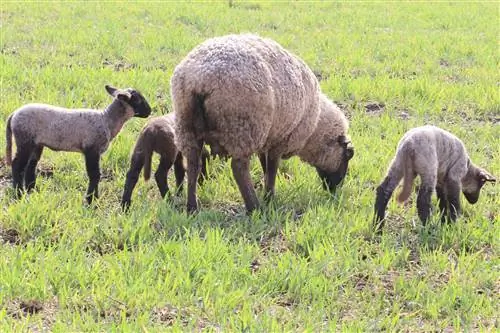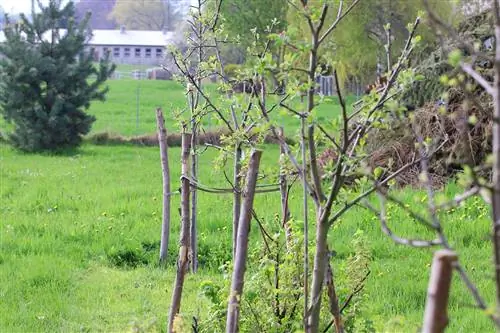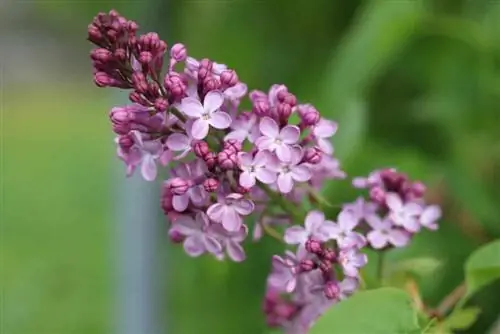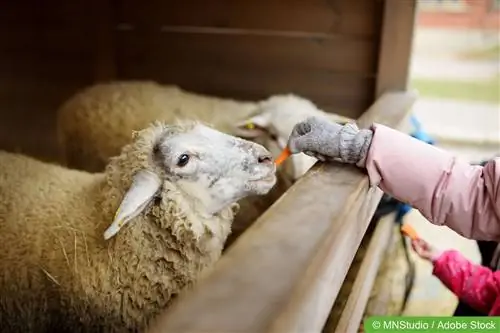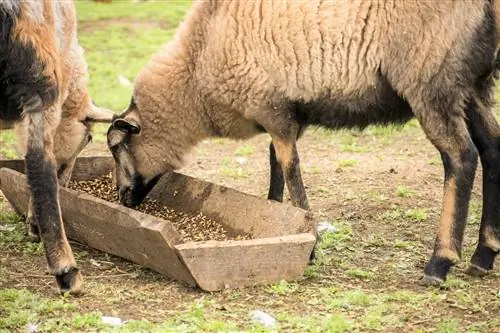- Author admin caroline@plants-knowledge.com.
- Public 2023-12-17 03:39.
- Last modified 2025-01-24 12:45.
On a natural pasture, sheep rarely find only their favorite food. Very poisonous or indigestible plants can grow there. Various feed that is produced at home is also only suitable for sheep to a limited extent. We list what sheep are not allowed to eat.
Poisonous Plants
Even the smallest amounts of highly poisonous plants are enough to cause severe to life-threatening symptoms in sheep. Sheep farmers should therefore check their pastures regularly. If you discover these species on the sheep pasture, you need to act quickly:
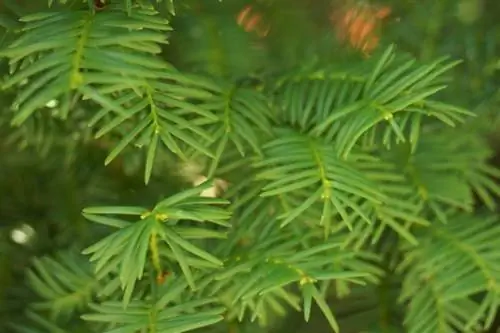
- Bracken fern (Pteridium aquilinum): in sparse forests, on forest edges
- Yew (Taxus): around mountain regions, in gardens
- Foxglove (Digitalis): in forest clearings, on forest edges, in gardens
- Spotted hemlock (Conium maculatum): on rubble sites, fallow land, on roadsides
- Buttercup (Ranunculus): in fields, in gardens, on damp meadows, along the side of the road
- Autumn crocus (Colchicum autumnale): on moist meadows and embankments
- Jacob Ragwort (Jacobaea vulgaris): in meadows, on field edges, on fallow land
- Tree of life (Thuja): mainly in gardens
- Sweet clover (Melilotus): in stony places, on paths and rubble areas
- Swamp horsetail (Equisetum palustre): on wet meadows, in fens, on banks
- Oleander (Nerium oleander): in the garden, as a container plant
- Rhododendron (Rhododendron): in gardens and parks
- Worm fern (Dryopteris): on water and in trees
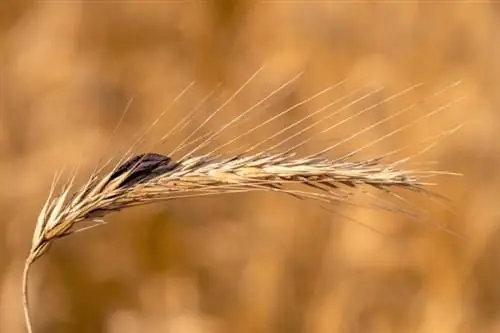
Note:
Ergot can grow on rye and other sweet grasses that are not poisonous themselves. These are highly poisonous ascomycetes. In sheep, ergot causes severe thirst and diarrhea and leads to dilated pupils.
Fruit
Sheep have a sensitive digestive system and get flatulent quickly. Even local fruit cannot be fed safely. At most, you can give them apples, pears, watermelons, grapes and other local fruits every now and then and in small quantities. However, sheep are not allowed to eat stone fruit. These include, among others:
- Apricots
- Mirabelle plums
- Plums
- Peaches
- Sour cherries
- Sweet cherries
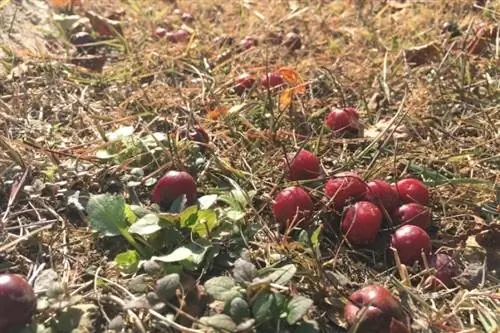
Tip:
Do not allow sheep to graze under fruit trees if there is a chance that they will find and eat fallen fruit.
Exotic Fruit
Sheep are not allowed to eat exotic fruits, even in small quantities. Therefore, never feed:
- Avocados
- Pineapple
- Bananas
- Mangoes
- Papayas
- Oranges
Vegetables
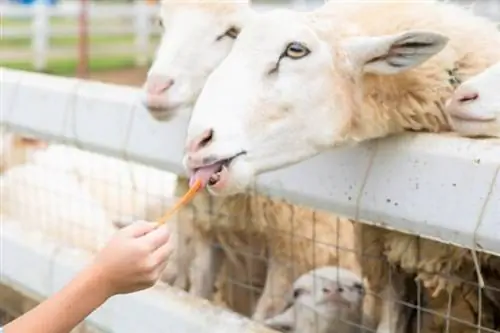
Most of the vegetables we humans eat are not suitable for sheep. Especially cabbage varieties, which can cause severe flatulence. Lettuce, turnips, carrots, celery, pumpkin and beets can be given raw to sheep. Potatoes and potato peels may only be fed boiled. But don't overdo it with the quantities here either.
Leftovers
Domestic sheep must not be fed leftover food, regardless of what it is made of. Processed products such as sweets are also not suitable food or snacks. At best, well-dried bread can be given to them now and then.
Frequently asked questions
What symptoms do sheep show when they have eaten the wrong food?
In the best case scenario, affected sheep experience temporary flatulence and stomach cramps. But the following symptoms of poisoning are also possible: loss of appetite, bloody diarrhea or constipation, circulatory problems, circulatory failure, colic, paralysis, cardiac arrest. Some plants/plant parts, such as yew tree seeds, are so poisonous that just a few pieces can quickly lead to death.
What should I do if I observe symptoms of poisoning in sheep?
Contact a veterinarian immediately and discuss how to proceed. It's good if you can find out what poisonous food the sheep ate. This can help the veterinarian take correct countermeasures. To be on the safe side, throw away any remaining food or at least put it away until it is clear whether it caused the symptoms of poisoning.
Are the poisonous plants also dangerous when they are dried?
The many poisonous plants are too different to give a general answer. In some species the toxic substances are broken down during drying, in others they are not. For example, ragwort and autumn crocus remain highly poisonous even after drying. They are therefore not allowed to get into hay or silage.
What do sheep like to eat most?
Sheep, like cows, are ruminants. They love green, lush grass and can eat as much of it as they are hungry in the summer. Straw and hay are also an integral part of their diet, especially in winter. Sheep are also fed oats, barley, corn, legumes and bran. By the way, sheep don't like food that has been sitting around for a long time. That's why you should only get small quantities and, if necessary, a second helping.

